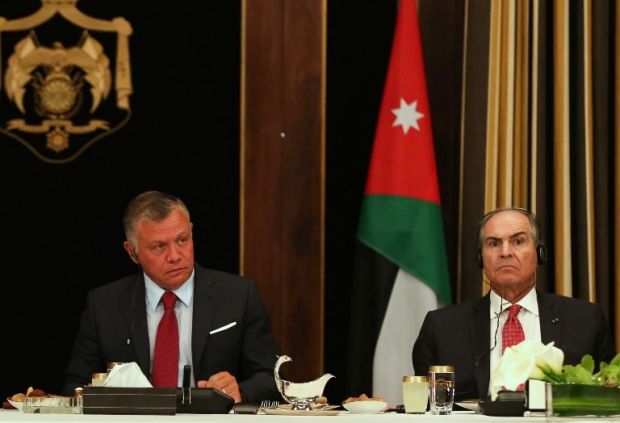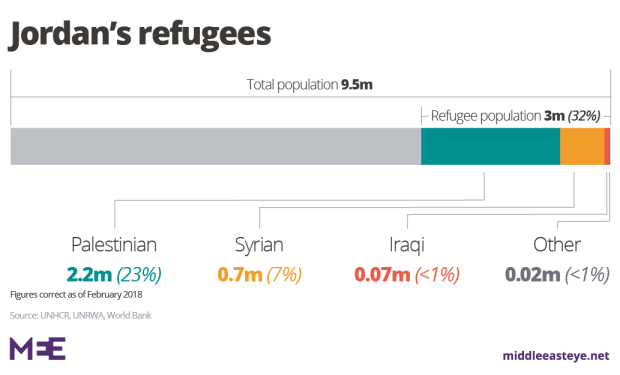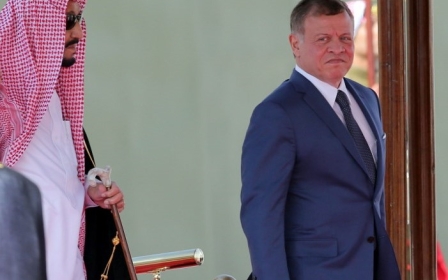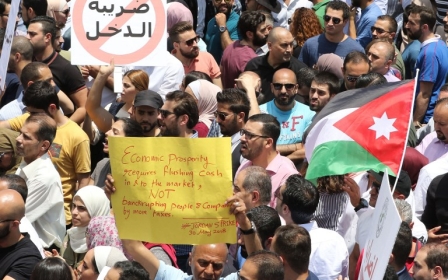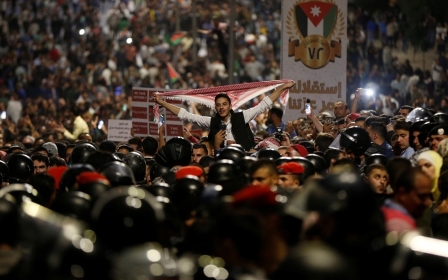Saving Jordan: Could Iran and Qatar be the solution?
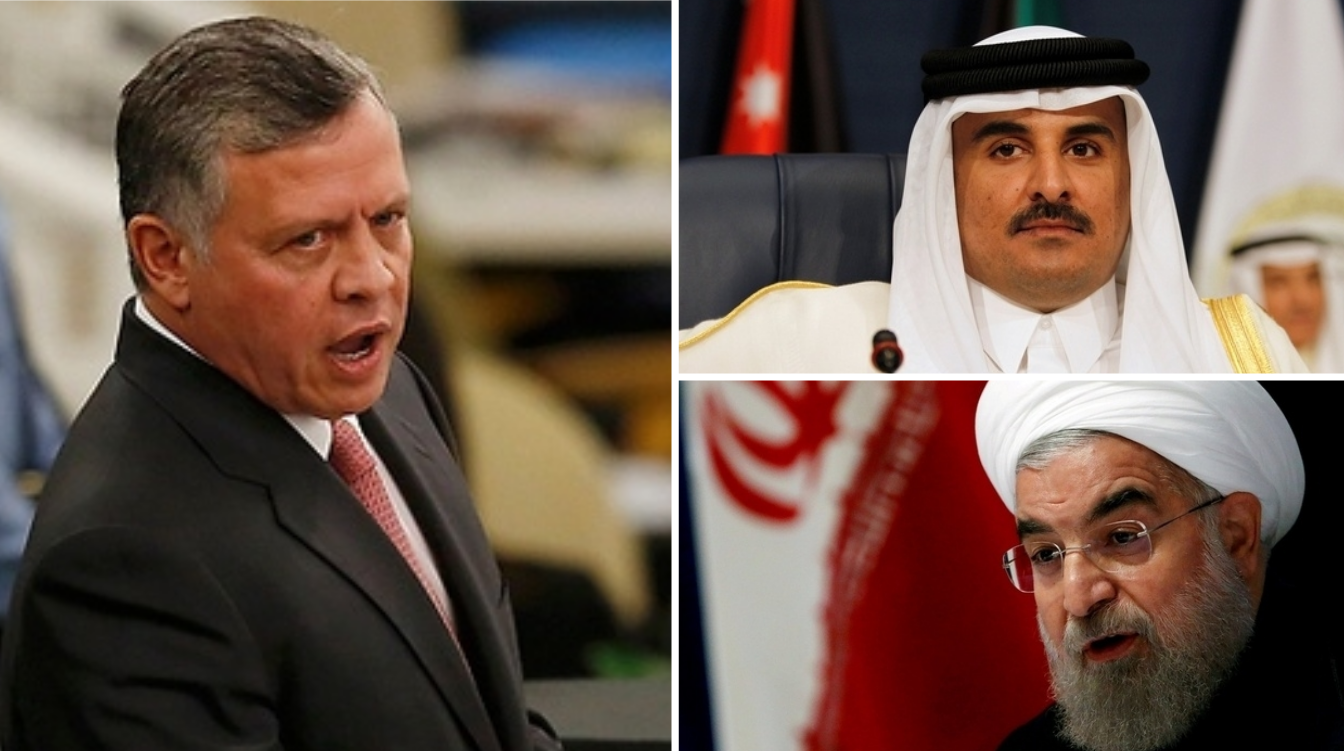
On the fifth day of Jordan's heated protests, Crown Prince Hussein bin Abdullah went down to the street at night and asked security forces to protect demonstrators and preserve their right to express themselves.
This was a clear royal message, indicating that the regime and king had agreed to overthrow the government and its controversial head, who was still trying to impose more taxes on Jordanians.
The king, his advisers and security services - and even the government and parliament - realised that Jordanians were boiling with anger over high prices and low salaries reaching dangerous and unprecedented heights.
Refusal to back down
This marked the first time that Jordan, from north to south and east to west, has witnessed such protests. In 1996, protests erupted against the increase in bread prices in the poor southern cities; in 1989, protests were limited to Maan, and King Hussein managed to contain them.
The latest protests began with a call for a general strike by syndicates and trade unions last Wednesday, with protesters demanding the withdrawal of a draft law that would increase the burden of income taxes. The government refused to back down, as this was one of the conditions that the International Monetary Fund required to continue providing support and loans to Jordan.
The removal of the government and the cancellation of the income tax draft law will not calm the Jordanian people, because the crisis has become too great
The demands of the protesters quickly morphed into a call to dismiss the government. Some went further, calling on the king to sack the government, dissolve parliament and reform the political system to fight corruption. The head of the engineers’ syndicate said the second round of the strike would take place next Wednesday, whether the government resigned or not, “because what is required is to change the approach and not the people”.
These developments mean that the removal of the government and the cancellation of the income tax draft law will not calm the Jordanian people, because the crisis has become too great. There is an economic crisis and a parallel political crisis; overcoming them and saving the country requires a set of larger and deeper measures.
Popular anger
The first move would be forming a new government with new members, dissolving parliament and calling for new elections, as the popular anger was raised against the government and parliament together. It is not sensible to assign one of the ministers of the dismissed “crisis government” to form a new government; if Omar Razzaz had a solution to the economic and political crisis, he would have presented it before the government, of which he was a part, reached the stage of collapse.
Secondly, one of the main reasons for Jordan’s economic crisis was the cessation of financial support from Saudi Arabia and the UAE, in addition to the scarcity of funding from the UN agency for Palestinian refugees and assistance for the Syrian refugee influx.
The economic and political pressures exerted on Jordan may push it to look for an alliance with Iran as well. It is not possible for Jordan to remain neutral in the region and to pay the costs of this neutrality alone. Merely hinting at an alliance with Tehran, or improving relations, could bring other players back to Jordan’s side.
Foreign relations
In sum, Jordan’s current internal crisis may prompt it to reconsider its relations with foreign countries. Given the current contradictions in the region, Jordan may find itself forced to quickly ally with Qatar, Iran and Turkey. This may explain the warm handshake between King Abdullah II and Iranian President Hassan Rouhani in Istanbul during the recent Islamic summit. It could also explain why Qatar’s Al Jazeera network returned to operate freely in Jordan, despite the closure of its offices there.
Jordan also needs international support to help bear the burden of its Syrian and Palestinian refugees. The UN refugee agency has said it needs $5.6bn to support Syrian refugees in the region, but it has thus far raised less than a quarter of that.
Unless significant changes are made with regards to external support, Jordan will be obliged to proceed with the imposition of more taxes and price increases. The poor and middle classes will respond with more protests, and the new prime minister, a Harvard-educated economist, will appear to have failed to manage the country during its crisis.- Mohammad Ayesh is an Arab journalist currently based in London.
The views expressed in this article belong to the author and do not necessarily reflect the editorial policy of Middle East Eye.
Photo: (L-R) Jordan's King Abdullah, Qatar's Emir Tamim and Iran's President Rouhani
New MEE newsletter: Jerusalem Dispatch
Sign up to get the latest insights and analysis on Israel-Palestine, alongside Turkey Unpacked and other MEE newsletters
Middle East Eye delivers independent and unrivalled coverage and analysis of the Middle East, North Africa and beyond. To learn more about republishing this content and the associated fees, please fill out this form. More about MEE can be found here.



